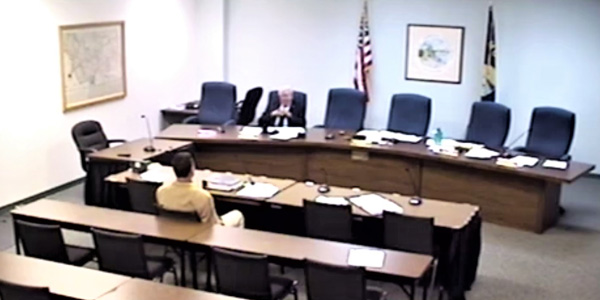By Amanda Durish Cook
A Montana utility commissioner was caught on a hot microphone last week appearing to confirm what renewable energy advocates say they already suspected: that state regulators knowingly put rules in place that will suppress development of small solar projects by altering the contract terms available to generators under the Public Utility Regulatory Policies Act.
During a break in a June 22 meeting of the Montana Public Service Commission, a microphone — inadvertently left on — picked up Commissioner Bob Lake speaking privately about a recent decision to reduce the standard contract length and rate available to qualifying facilities up to 3 MW under PURPA.
Enacted by Congress in 1978 to encourage diversification of energy supplies, PURPA requires utilities to pay QFs the cost a utility would incur for supplying the power itself or by obtaining supplies from another source. The law leaves it to each state’s utility commission to formulate those rates and set contract terms, depending on project size.
QF Death by Attrition
Lake’s comments were captured in a video posted by the Billings Gazette, which shows him and PSC rate analyst Neil Templeton discussing the commission’s move to cut QF rates by about 40% and reduce contract terms from 25 years to five years with the option to negotiate rates for an additional five years. NorthWestern Energy last year complained that QF rates were 35% above its “avoided costs” and asked that they be reduced (Docket No. D2016.5.39).
“It’s essentially a five-year rate, so … it’s going to probably kill QF development entirely,” Templeton said in the footage.
“Well, actually, a 10-year [contract length] might do it if the price doesn’t,” Lake replied. “And honestly at this low price, I can’t imagine anyone going to get into it. So, it becomes a totally moot point because just dropping the rate that much probably took care of the whole thing.”
“We’re live,” Lake worries later in the video. An unidentified staffer in the room assures him that microphones are turned off.
The incident follows FERC’s January decision to decline enforcing PURPA against the PSC. Solar advocacy group Vote Solar had complained that the state regulators violated the law when it allowed NorthWestern to suspend its tariff for solar QFs pending a rate review (EL16-117). (See FERC Won’t Act on Montana Regulators in PURPA Dispute.)
No Surprise for Solar Supporters
Jenny Harbine, an attorney with Earthjustice representing Vote Solar, was unsurprised by the content of the recorded conversation but surprised that the comments were captured.
“It’s remarkable that the concession was caught on tape, but as a general proposition, it’s well understood by the rest of the world,” Harbine told RTO Insider. “You can’t finance an energy project with a five-year contract any more than I can finance my home with a five-year mortgage. Commissioner Lake and the commission staff confirmed on the open mic that they understand that solar development [under the new five-year contract] is not feasible.
“When state commissions set unreasonably short contract lengths, development of those projects fall off a cliff. There’s evidence of that,” Harbine added. “What the commissioner conceded is that he understood a shorter contract length would close the door on those projects.”
Another notable point about the commission’s decision, according to Harbine: While NorthWestern had asked the commission to reduce the amount paid to QFs under PURPA, the utility did not ask for a shorter contract length.
“The commission took that upon themselves,” Harbine said, adding that developers should be “hopping mad.”
PSC’s Defense
PSC Communication Director Chris Puyear said the decision to reduce the QF contract length and rate boils down to price fairness for ratepayers.
“It’s not the role of the commission to pick winners and losers in the energy landscape,” Puyear said in an email. “Federal law says ratepayers shouldn’t have to overpay for electricity produced by independent generators, but that’s exactly what was happening in Montana.”
Customers were “forced to pay nearly double the market price of electricity for power produced by independent solar facilities” under Montana’s previous QF rate, he added.
“The commission’s action brings rates for independent power in line with what customers would otherwise pay for power produced by the utility, while ensuring that long-term, fixed price contracts do not shift undue risk to the ratepayer,” Puyear said.
“In making its determination on avoided cost and contract length, the commission relied heavily on record evidence, especially the testimony of the state ratepayer advocate, the Montana Consumer Counsel.”






